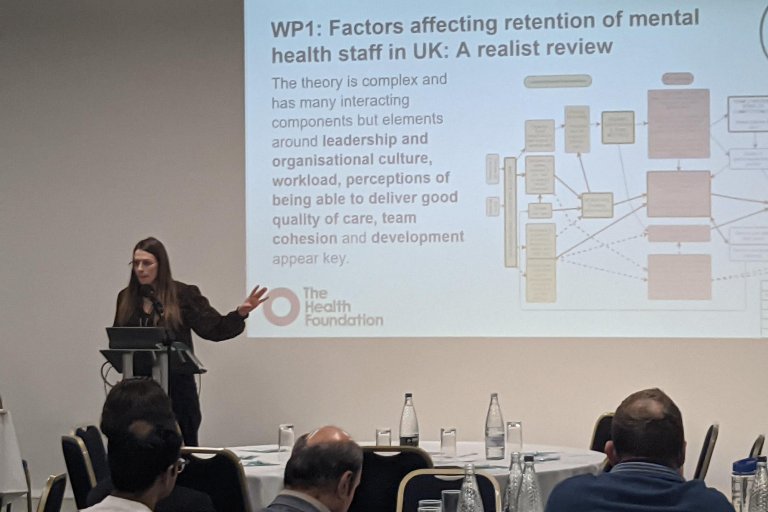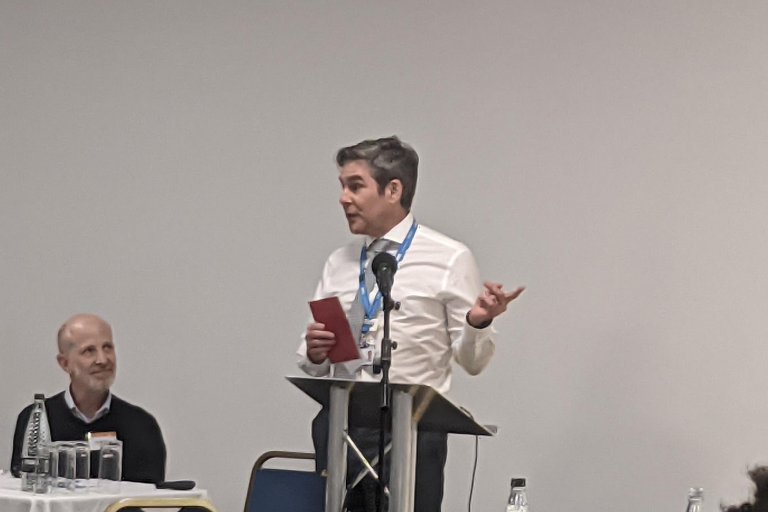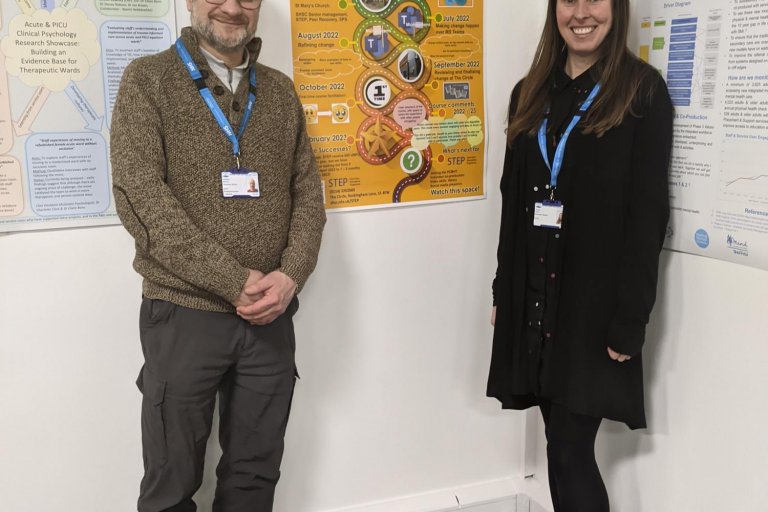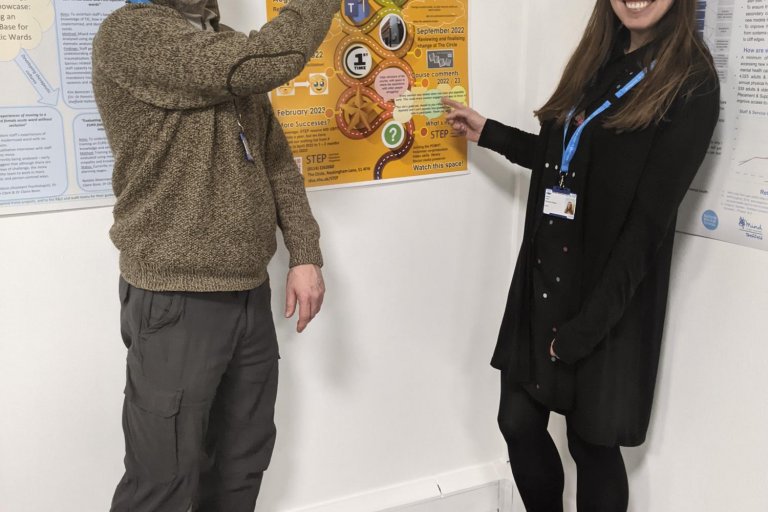The Research and Effectiveness Showcase welcomed speakers and delegates from across the NHS and academia. They came together to share achievements, ideas, and findings from mental health research across the region.
The event was hosted by the Sheffield Health and Social Care (SHSC) Research Development Unit and took place on Tuesday 28 February at the Workstation in Sheffield city centre. It was a huge success with a packed line up of speakers, an engaged audience and a poster competition giving the opportunity to showcase new research and improvement projects.
Research posters were displayed throughout the day and a winner was voted for by attendees. The winning poster was developed by SHSC’s Short Term Educational Programme (STEP) team for their poster 'From ideas to reality: redeveloping our Understanding Borderline Personality Disorder course'.



